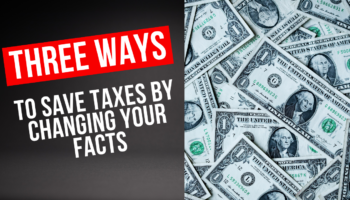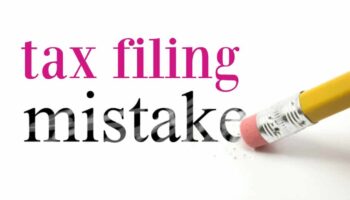How the right application of these accelerators can accelerate the growth of your wealth
Why are the rich getting richer and everyone else getting poorer? Are the rich smarter than the rest of the world? Are they more talented? What do they know that the rest of the population does not know?
The answers to these questions can be varied and sometimes complex. It is certainly true that there are things that the rich know that the rest of the masses don’t know. These 3 powerful accelerators of wealth are concepts that the rich have certainly mastered.
You too can learn more about these accelerators, master them, and employ them in your strategy as you build and grow your wealth.
1. Compound Interest
Compound interest is the principle by which the interest you earn also earns interest, and the interest on that interest earns interest, ad infinitum. This is in contrast to simple interest, where you only earn the same amount of interest each year on your original principal balance.
With compound interest, the larger your balance gets, the bigger those interest numbers become. As you may have heard in the past, compound interest is often called the eighth wonder of the world. Compounding is certainly one of the marvels of the universe.
“Compound interest is the eighth wonder of the world. He who understands it, earns it … he who doesn’t … pays it.” — Albert Einstein
To illustrate the power of compound interest, consider the following question: how much would one penny, doubled every day for one month, equal? If you’re like most people, your guess would be around $500. The correct answer? One penny, doubled every day for a month, equals a whopping $10.7 million!
This is absolutely shocking to most people, not because the math is too challenging, but instead because the answer is so unexpected. We think that a penny is worthless and that one month is a relatively short time. I was in the same boat too as I found this shocking when this same question was posed in a report by Adam Baratta that I read recently.
Compound interest has a similar effect, and just like in the example above, we often underestimate the power of compound interest. If you do the math to solve the question above, you will notice that the exponential growth in the number did not start until day 28 when it skyrocketed.
With compound interest, as the numbers get bigger, so does the benefit of compounding. Think of it like a snowflake turning into a giant snowball — the longer the hill is, the bigger the snowball can get.
There is a concept called the “Rule of 72” that helps to simplify the concept of compound interest and its impact. The rule tells us that at a given interest rate if you divide that rate into 72, the result indicates how many years it will take to double your money when it is compounding.
For example, if you earned 8 percent compound interest, your money would double every 9 years (72 divided by 8 equals 9); if you earned 10 percent compound interest, your money would double every 7.2 years. The impact gets even bigger when you compound monthly, weekly, or daily.
Bear in mind that to benefit from the “magic of compounding interest,” you need to redeploy that income quickly so you can start making returns on the money you made as soon as possible as well.
As you can see, compound interest can help you accelerate your wealth when applied correctly to your savings and investments.
“Time is your friend, impulse is your enemy. Take advantage of compound interest and don’t be captivated by the siren song of the market.” — Warren Buffett
2. Leverage
Leverage simply refers to using other people’s money (OPM) — borrowing, incurring debt, taking bank loans, using credit cards, etc.
As you may already know, leverage is a double-edged sword. When poorly used, it can result in an unmanageable debt level that can cause more harm than good. When used judiciously as an investment tool, leverage can be an awesome thing.
Without leverage, accumulating wealth will be more challenging — it is not impossible to achieve some level of financial freedom without leverage, but it will take a much longer time and you will never truly achieve significant wealth.
The use of leverage maximizes your returns and substantially shortens the time required to attain wealth. For example, if you invest $100,000 in a GIC that has an interest rate of 2% per annum, it would yield a return of $2,000 per year. If you were to take that same $100,000 and use it as leverage to purchase a $500,000 property, assuming the same 2% growth on your new investment value of $500,000, you would get a gross return of $10,000. Which would you prefer?
If you truly understand and embrace this concept of positive leverage, and apply it in your investments over and over again, you will accelerate your wealth accumulation in the same way that compound interest does.
“Attempting to succeed without embracing the tools immediately available for your success is no less absurd than trying to row a boat by drawing only your hands through the water or trying to unscrew a screw using nothing more than your fingernail.” — Richie Norton
3. Velocity
This is one concept that most people may be unfamiliar with, particularly when it comes to personal finance. In the world of finance and economics, the velocity of money is a measurement of the rate at which money is exchanged in an economy.
It is the number of times that money moves from one entity to another. In economics, the velocity of money is usually measured as a ratio of gross domestic product (GDP) to a country’s money supply.
In Robert Kiyosaki’s book, “Who Took My Money?”, he writes that the velocity of money is one of the reasons why the rich get richer while the average person risks losing a large portion of their savings. According to Robert, as an investor looking to build and accelerate wealth, you want to:
1. Invest your money into assets
2. Get your money back
3. Keep control of the asset
4. Move your money into a new asset
5. Get your money back
6. Repeat the process
As you can see, the same money is reinvested into assets over and over again. The term velocity is associated with speed. So, how quickly do you want to reinvest? As quickly as possible!
There are two important reasons why we should use the velocity of money to our advantage. Firstly, it significantly reduces our risk; and secondly, it allows us to compound income at a faster pace (do you remember the power of compound interest?).
Billionaire Mark Cuban and owner of the NBA’s Dallas Mavericks once tweeted:
“People create wealth by owning assets that appreciate or create/earn other assets.”
If you think about this statement, you will see that wealth flows from using your assets to acquire more assets. The underlying force that allows you to do this is the velocity of money.
In Conclusion
These are concepts I wish I knew long ago. I think these would have made a significant difference in my planning and overall thinking in terms of building and accelerating the growth of wealth.
Along my journey, I have accidentally employed most of these concepts but certainly not strategically. Today, I have a better appreciation of these powerful accelerators of wealth and employ them as much as I can in my planning. I hope you now have a better understanding of these concepts.
These powerful accelerators of wealth — compound interest, leverage, and velocity — are fundamental concepts I discuss in my upcoming eBook. I show you how you can take these concepts and begin to build a plan to grow and accelerate your wealth in a tax-efficient manner.
P.S. I am on a mission to arm you with financial education. That’s one reason I wrote Tax-Efficient Wealth. This book will help you accelerate your wealth in a tax-efficient way. Grab a copy my book, Tax-Efficient Wealth, to learn how you can build wealth quickly using strategies that will save you a ton in taxes.






